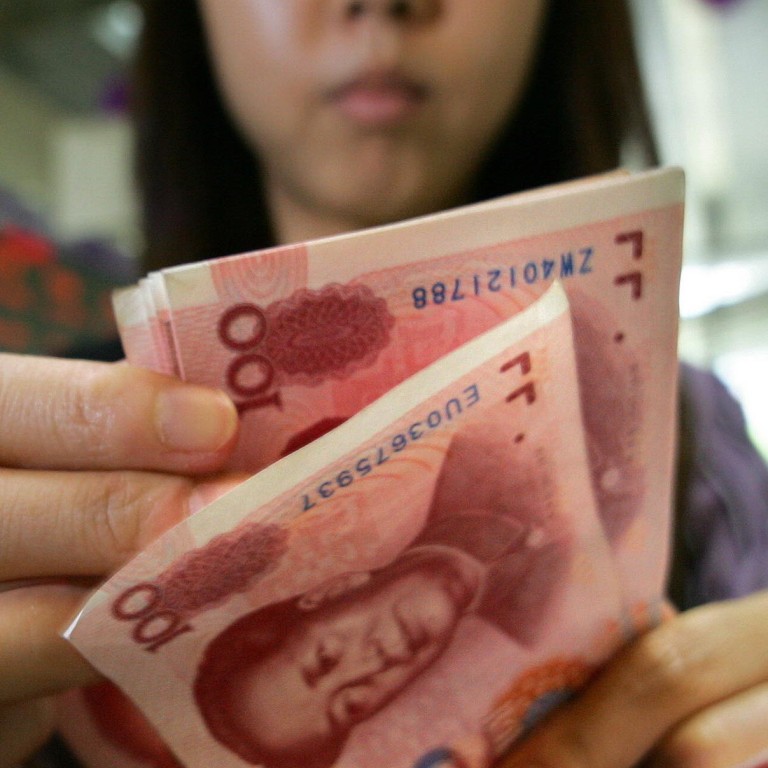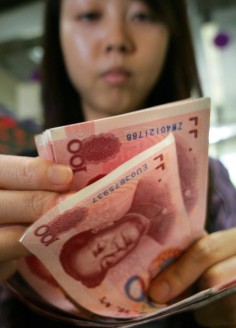
Banks told to raise capital to avoid bailout
Threat of crisis from rising bad loans spurs Beijing to push lenders to raise private funds
Faced with warnings about rising bad debts, Beijing is pushing banks to raise private capital in an effort to head off the need for a second government bailout in as many decades.
The hangover from a credit binge that powered the mainland's swift recovery from the global financial crisis, combined with a slowing economy, has prompted expectations of a repeat of the early 2000s, when Beijing shored up its major banks.
Right now, however, the authorities appear focused on pushing banks to bolster their balance sheets by aggressively enforcing new international bank capital requirements, known as Basel III.
Some analysts say warnings of an impending crisis are overdone.
[Beijing] won’t provide this help easily. If you do it easily, it creates very large moral hazard
"We've done some stress test analyses, which find that even under fairly stressed scenarios, the banks - especially the larger banks - will still be making a marginal profit," said Grace Wu, the head China bank analyst at Daiwa Capital Markets in Hong Kong. "So in that sense, they won't even eat into their reserves."
Twelve of the mainland's 17 listed banks have already announced plans to raise about 425 billion yuan (HK$538 billion), largely through subordinate debt.
On Friday, the securities regulator said banks - and other listed firms - could also issue non-tradeable preferred shares. That offers another avenue for banks to bolster their balance sheets with funding from commercial investors, and possibly a way for the government to inject capital directly if private funds are not enough.
Whether that will be necessary depends on how big the mainland's bad debt pile really is. This is a matter of guesswork, given that analysts think the official non-performing loan ratio of less than 1 per cent is a considerable understatement. Most put it in the 3 to 6 per cent range.
However, much of the potential risk lies outside the official banking system.

Former deputy central bank governor Wu Xiaoling said another bailout on that scale was unlikely, although she saw the possibility of targeted aid from Beijing for highly indebted local governments.
"But I don't think it will happen on a large scale," Wu said. "And the Chinese government won't provide this help easily. If you do it easily, then it creates very large moral hazard."
How the mainland tackles its debt challenge will largely determine the extent to which the financial system is able to support Beijing's aim of transforming the economy from one driven by investment-heavy industrialisation to one more reliant on consumption and services.
A debt workout by the banks would avoid the upheaval of a government-led bailout, but could weigh on economic growth for longer as banks work through their pile of non-performing loans.
A muddle-through option with limited debt write-offs and disposals would also spare the cost and political embarrassment of a bailout, but could lead to a Japan-style scenario in which banks continue to roll over bad loans to "zombie companies", crowding out more worthy borrowers.
But Wu said that extending the maturity of loans was sometimes appropriate.
"The vast majority is investment debt, like public infrastructure," she said. "It will eventually be a functional asset."
Those who fear a crisis point to a rapid rise in off-balance sheet lending, or shadow banking.
Charlene Chu, China bank analyst at Fitch Ratings, said banks were involved in 75 per cent of all non-traditional lending, so they were more exposed to shadow credit than their balance sheets suggested.
"A 1 per cent non-performing loan ratio has little signalling value when 36 per cent of all outstanding credit resides outside Chinese banks' loan portfolios," Chu said.

